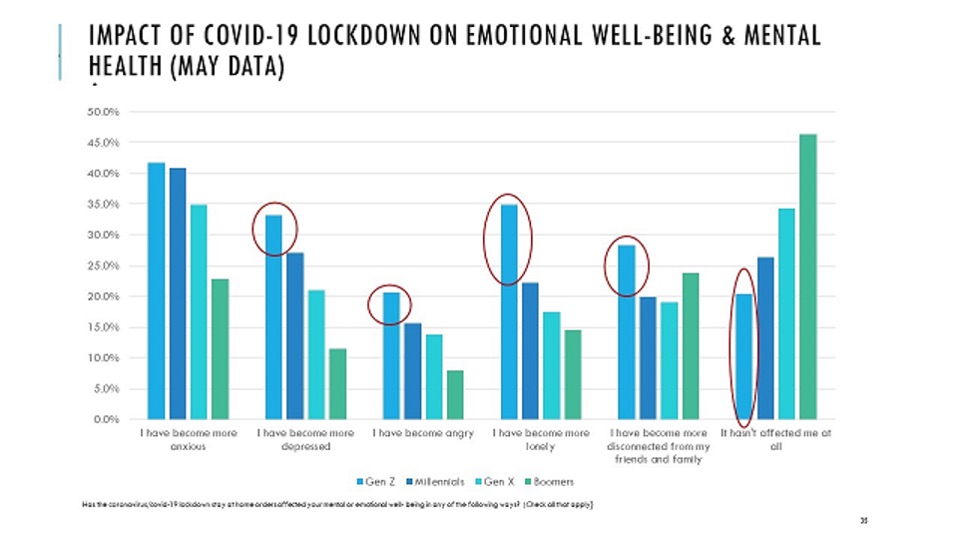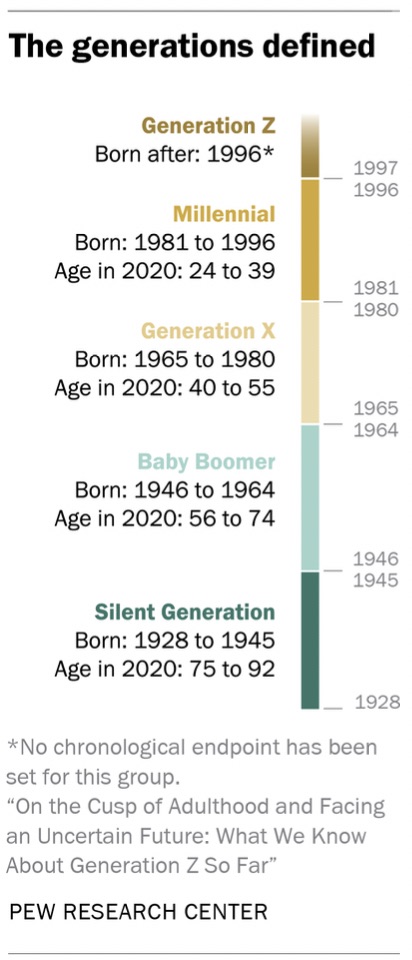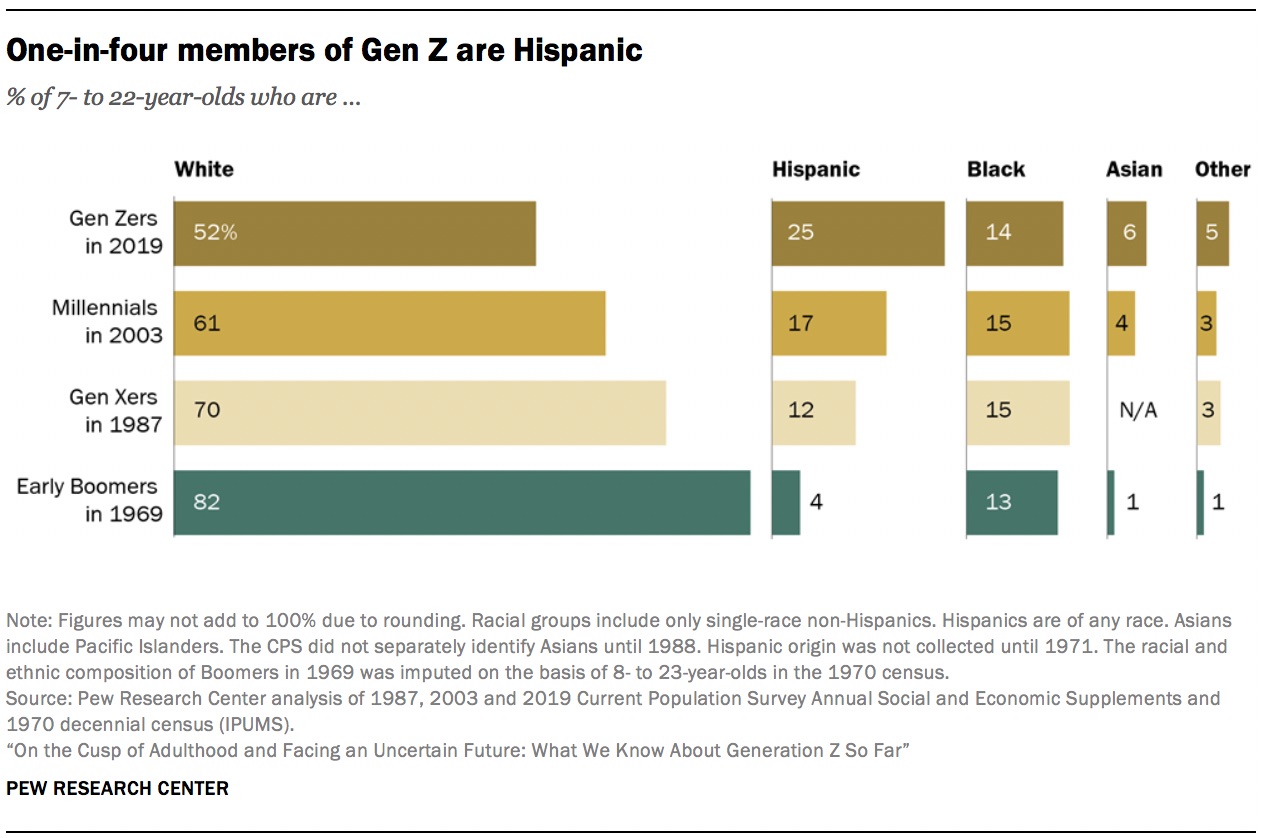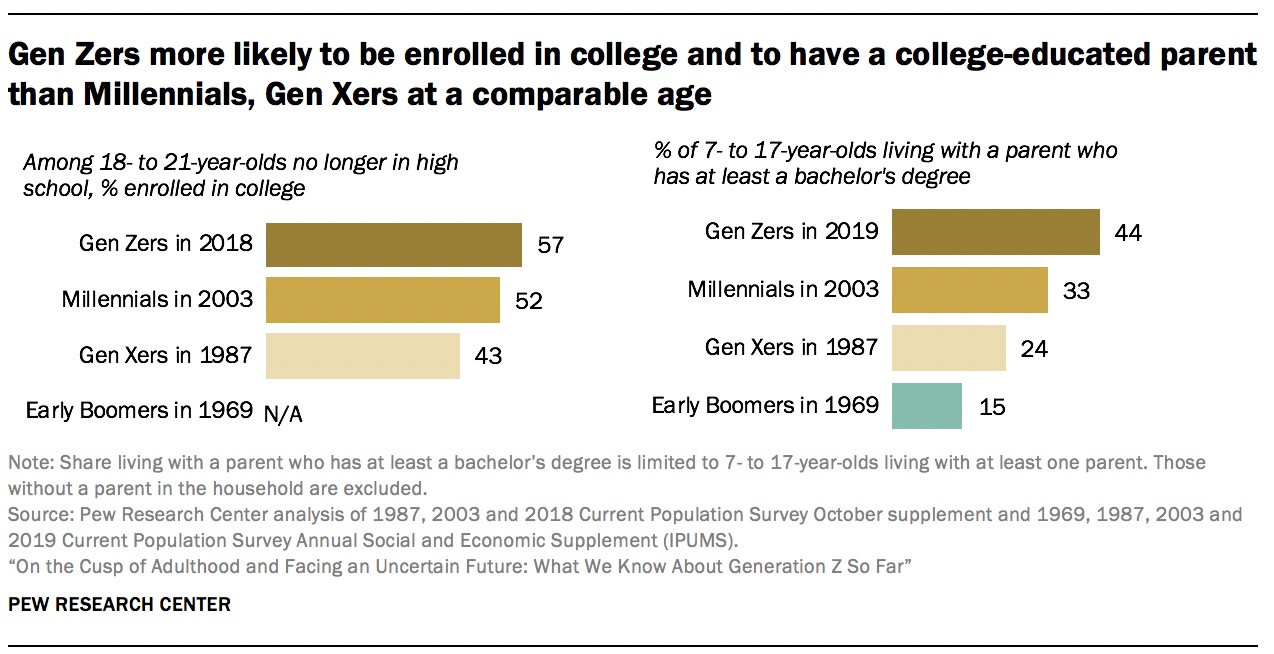What sets Gen Z-ers apart from others? How are they affected by the COVID-19 pandemic?
Accounting for about 2.47 of nearly eight billion people in the world in 2019, Generation Z has overtaken millennials and Baby Boomers to be the largest generation today.
Born after 1996, Gen Z-ers have been immersed in the digital world their entire lives. With this, they are constantly connected to the world.
While being the largest, millennials are still the dominant group in the four largest economies: China, US, Japan and Germany.
Nonetheless, the influence of Gen Z has already disrupted the current patterns of the world when it comes to business, shopping, and politics — just to name a few.
What we know about Gen Z-ers
In their recently published article, Pew Research Center identified some defining characteristics of the American Gen Z-ers based on their previous surveys.
They are the most racially and ethnically diverse generation, with only 52% being non-Hispanic white. The rest of the Gen Z-ers are either Hispanic (25%), Black (14%), Asian (6%), or some other race (5%).
Gen Z-ers are also set to be the best-educated, with 57% enrolled in a two- or four-year college as of 2018.
This generation is the most likely to think that:
- the government should be doing more to address problems (70%),
- to support same-sex marriages (48%), and
- to recognise the society’s lack of acceptance for those who do not identify as a man or woman (50%)
The Gen Z-ers (54%) are only second to millennials (56%) in acknowledging the impact of human activity in climate change.
In general, McKinsey considers the search for truth as the root of all the behaviour of this generation. With that being the case, their support for acting on various societal issues is not surprising.
Meanwhile, in her report, Ernst & Young executive director Marcie Merriman identifies self-awareness, persistence, realism, innovation, and self-reliance as the defining attributes of the generation.

Generation-defining event
The Gen Z-ers have been sending huge ripples of change in the state of the world. This year, however, the COVID-19 pandemic is causing a massive impact to the generation.

Among the effects of the pandemic to this generation can be observed in their mental health. According to the consumer data from Prosper Insights & Analytics, across all generations, they are most likely to report experiencing depression, loneliness, anger, feeling of disconnection, and anxiety due to the COVID-19 lockdown.
The same data also reveals that Gen Z-ers believe that COVID-19 will impact their future purchasing behaviour (50%). They are also the most anxious about contracting the virus (30%) and the most willing to make sacrifices to flatten the curve (59%).
According to Jason Dorsey, president and lead researcher at The Center for Generational Kinetics, older Gen Z-ers are likely to become more risk-averse post-pandemic. This includes choosing to go for more affordable housing or not moving too far away from where they are currently situated.
With the surge in unemployment, older Gen Z-ers, who are in the brink of adulthood may have to change some critical decisions in terms of their career.
As for the younger Gen Z-ers, Dorsey believes that the post-pandemic world might eventually become a positive, since the crisis would have hopefully passed and economies would have recovered by the time they enter college or the workforce.
The pandemic definitely has brought in a lot of uncertainties for the Gen Z. However, if this generation really is driven by realism as research shows them to be, this event would hopefully teach them more of the truths that they would stand for and would guide them to face the future ahead.














